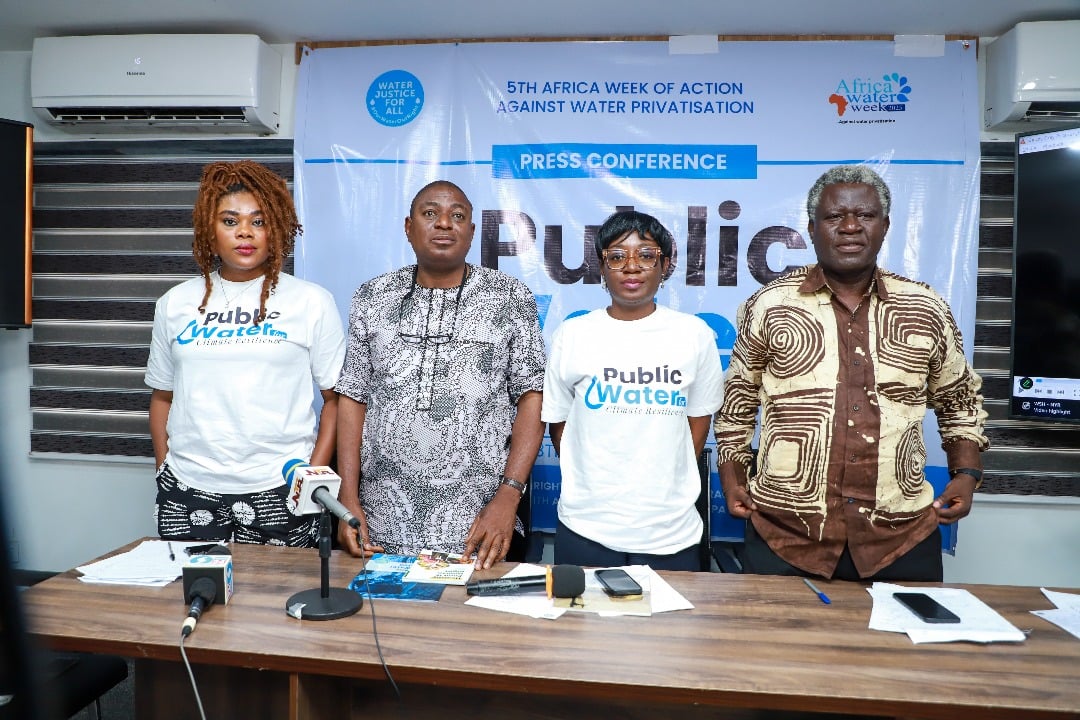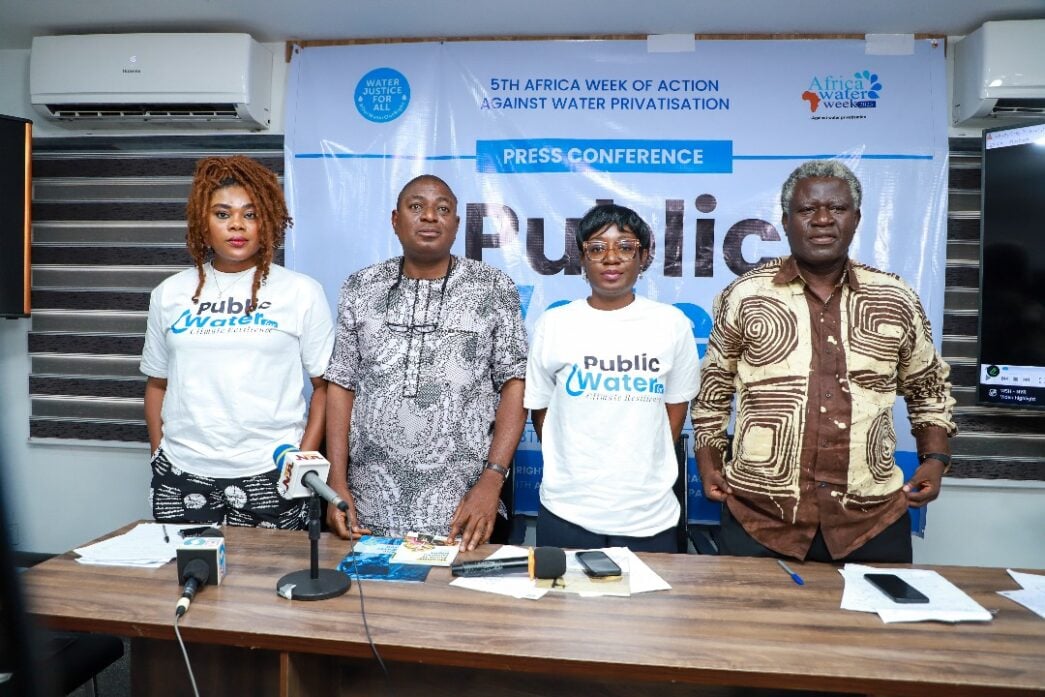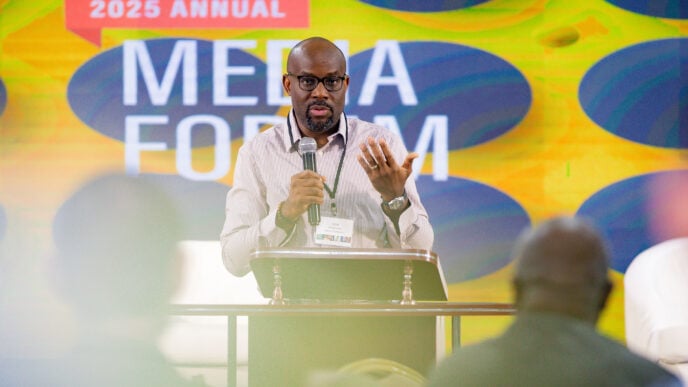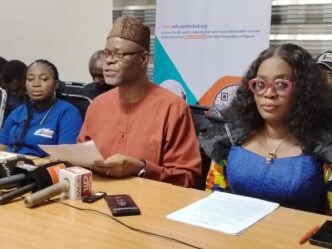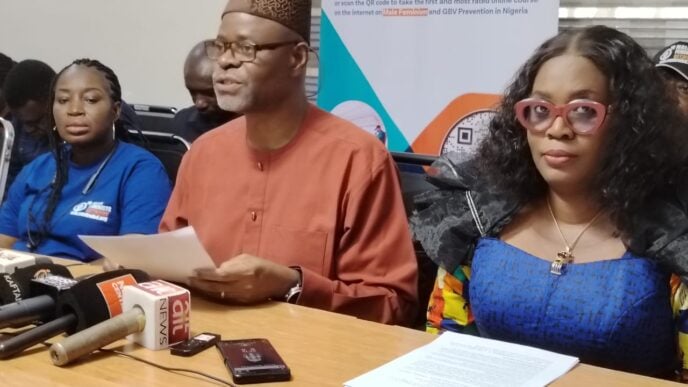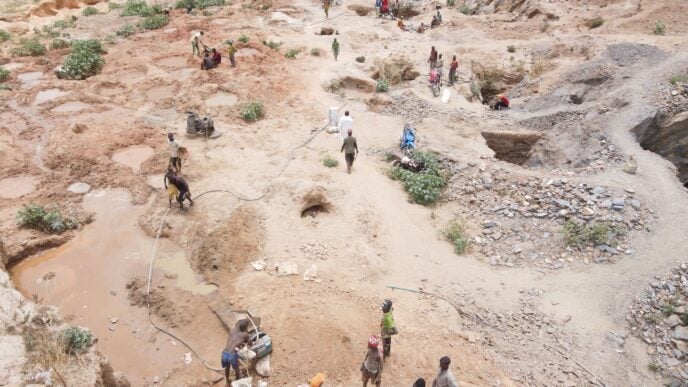The Corporate Accountability and Public Participation Africa (CAPPA) says water privatisation fosters climate inequality.
Speaking on Monday during the 5th Africa week of action against water privatisation in Lagos state, Akinbode Oluwafemi, CAPPA’s executive director, rejects the global push for water privatisation, saying equal access to free and clean water is a human right.
“The theme of this year’s observance, ‘Public Water for Climate Resilience’, could not have been timelier. Across Africa, we are living through the harshest realities of the climate crisis, including droughts that parch our farmlands, floods that destroy homes, and rising temperatures that intensify water stress. In fact, water is often the first and most visible victim of climate change,” he said.
“In 2010, the United Nations General Assembly (UNGA) adopted a historical resolution recognising ‘the right to safe and clean drinking water and sanitation as a human right that is essential for the full enjoyment of life and all human rights’. Sadly, this right is under threat in Africa by a twin problem of both government failure and nature’s response to man’s devastating use of the environment.
Advertisement
“At a time when we need stronger, publicly accountable systems to guarantee universal access, we are seeing growing pressure to privatise our water systems and hand control of this essential resource to profit-driven corporations, despite overwhelming public opposition.
“While nature cries for justice in the face of the climate emergency, capital smells opportunity. Multinational corporations now peddle desalination and other privatisation schemes as climate solutions, selling back to us the very water that belongs to the people.
“Today, we reject these false solutions. We assert that the way we protect and govern water will determine whether our communities can endure the crises ahead.”
Advertisement
Also speaking, Leonard Shang-Quartey, coordinator of Africa Water Justice Network, said water cannot be treated as a commodity to be bought.
“In many communities in Ghana, you find an average 15-year-old who has no memory of when water used to run from their taps,” he said.
“By the end of the year 2000, according to the WHO and UNICEF, close to 353 million people on this continent were without water. At the end of 2020, the number had risen to 411 million people without access to basic and safe water.
“Instead of the situation improving, we are seeing a retrogression. That is an example that makes the fight against water privatisation very important. It basically takes away access from people.”
Advertisement
“WATER JUSTICE IS ENVIRONMENTAL JUSTICE”
On his part, Neil Gupta, Water Campaign Director of Corporate Accountability (CA), said water privatisation poses a dire risk to people’s ability to adapt to and mitigate the worst impacts of climate change.
“While some might try to convince us that certain schemes like public-private partnerships don’t count as privatisation, we can’t be fooled because this is about corporate control of water,” Gupta said.
“The privatisation of water shifts the priority from universal access to maximising profit to the corporation and its shareholders. This explains why, in case after case, country after country, water privatisation is all too often followed by unaffordable tariff hikes, labor abuses and job cuts, and dangerous cost-cutting.
Advertisement
“Water privatisation also poses a dire risk to our ability to collectively adapt to and mitigate the worst impacts of climate change. Simply put, the short-term profit incentives of the private sector are fundamentally incompatible with the long-term planning and investment that the climate crisis requires.”
Adelaja Odukoya, dean of the faculty of social sciences at the University of Lagos (UNILAG), said water privatisation is a capitalist order that profits from people’s misfortune.
Advertisement
“We have the global bad samaritans like the World Bank, IMF, who are the marketing agents for transnational capital, saying privatisation of water will bring a lot of things, but the reality we have actually contradicts that,” he said.
“They equally argue privatisation will bring efficiency. Even in Britain, water privatisation has led to a lot of problems. It has only increased dividends to shareholders.
Advertisement
“Water justice is equally environmental justice. We must not allow water privatisation. It denies people access and impoverishes them. We must insist that water should remain a public good. Privatisation of water is a disaster. Water is a collective good for all. We can’t continue in a situation where it’s only those who can pay for it that should get water.”
Advertisement
